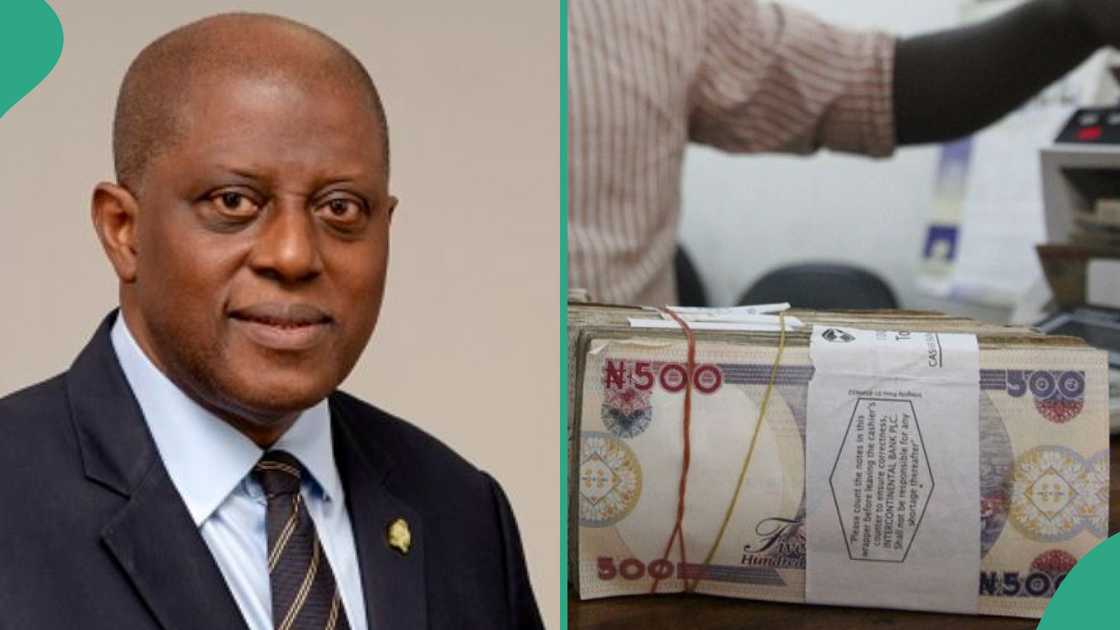Economist Reveals Real Naira Rate as Currency Emerges Among Top Worst-Performing
- According to Bloomberg, the naira is one of the world's ten most undervalued currencies
- Africa is home to five of the 10 currencies with the worst performance, including the naira
- The report also mentioned how many African economies rely heavily on oil exports
Don't miss out! Join Legit.ng's Sports News channel on WhatsApp now!
Legit.ng journalist Zainab Iwayemi has over 3-year-experience covering the Economy, Technology, and Capital Market.
Bloomberg has reported that that the Nigerian naira is one among the top ten underperforming currencies worldwide.

Source: UGC
Five of the ten worst-performing currencies, including the naira, the Zambian kwacha, and the Angolan kwanza, come from Africa, according to a report by the journal.
The decline in the value of African currencies was attributed to a number of factors, including inflationary pressures, volatile commodity prices, economic difficulties, and a scarcity of dollar liquidity.
Bloomberg added that a large number of African economies are dependent on oil exports, making them susceptible to price decreases, which explains their subpar performance.
While oil prices are a significant influence, they are not the only problem, according to Keonethebe Bosigo, portfolio manager at Mazi Asset Management, who commented on the data.
According to Bosigo, the main offenders are imbalances and inadequate currency management.
Speaking about the naira's performance, the portfolio manager stated that while oil prices play a role, the true problem lies in the naira's inability to adjust, which resulted in an overvaluation and a subsequent decline in investor confidence.
Irmgard Erasmus, an economist at Oxford Economics, stated that even with policies meant to liberalize the current account, the naira is still under a lot of pressure.
“The naira remains undervalued relative to its long-term neutral value due to ongoing issues around liquidity and dollar supply,” Erasmus said.
“Although Nigeria has made inroads toward current account liberalisation since the Tinubu victory in 2023, hard-currency supply challenges persist while tightening regulations on the banking sector and BDC operators contribute to risk aversion.”
The economist went on to say that while the situation has only become worse, increased dollar liquidity may eventually aid in the naira's recovery.
“The government’s slow pace of reforms, combined with haphazard monetary policies, continues to keep the currency in undervalued territory,” he added.
Real naira rate is N1,100/$
Erasmus said that, excluding distortions, the naira should be trading more in line with N1,100 per dollar as opposed to its closing value of N1,544 on Thursday, 19 September 2024.
He did, however, add that the naira's future is still uncertain in the absence of material policy adjustments and more dollar liquidity.
IMTOs receive highest dollar inflow
Legit.ng reported that as a result of the Central Bank of Nigeria's (CBN) recent reforms, dollar inflows into Nigeria through International Money Transfer Operators (IMTOs) rose to the greatest level in at least six years.
According to a BusinessDay examination of statistics from the CBN's most recent quarterly statistical bulletin, dollar inflows increased from $771 million in 2023 to $1.07 billion in the first three months of this year, a 39% increase.
Moreover, it increased from $965.3 million in Q4 on a quarter-over-quarter basis.
PAY ATTENTION: Сheck out news that is picked exactly for YOU ➡️ find the “Recommended for you” block on the home page and enjoy!
Source: Legit.ng





